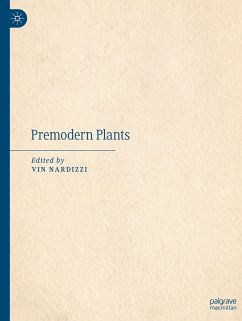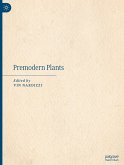This book gathers essays on premodern plants, considering the position of critical plant studies in relation to medieval studies. Contributions cover topics including the significance of the daisy in the two Prologues to Chaucer's Legend of Good Women; naming in premodern herbals; gathering prayers; vegetal decay in the prose romance Perceforest; the futurity of plants as they ripen and then rot; and vegetal life in libertine science and literature from the seventeenth century. Taken together, they provide a thoughtful reflection on premodern plants.
Bitte wählen Sie Ihr Anliegen aus.
Rechnungen
Retourenschein anfordern
Bestellstatus
Storno








